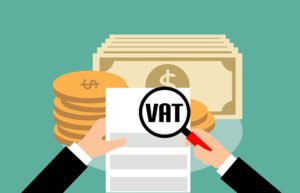Blog
Posted November 18, 2025
Retail Ready: VAT and Cash Flow Tips for the Christmas Rush
The festive season represents the most crucial trading period for retail and hospitality businesses across the UK. Whilst Christmas can deliver exceptional revenues, it also presents unique financial challenges that require careful planning and management. From VAT obligations to cash flow pressures, getting your finances right during this peak period can make the difference between a profitable quarter and a January headache.
Managing VAT During Your Busiest Period
The Christmas rush brings a surge in transactions, but it also means substantially higher VAT obligations. Many retail businesses find themselves caught out when their January VAT bill arrives, having already spent the VAT collected during their busiest trading weeks.
Set aside VAT immediately. The golden rule is to treat VAT as money that was never yours to begin with. Consider opening a separate bank account specifically for VAT and transferring the appropriate percentage from each day’s takings. This discipline prevents the common pitfall of viewing your December bank balance as available working capital, only to face a significant VAT liability in the new year.
For businesses on standard VAT accounting with a December QE, your Q4 VAT return (covering October to December) will be due for payment by 7th February 2026. This means you’ll need to make this payment during what’s typically a quieter trading period, so planning ahead is essential.
Consider the Cash Accounting Scheme. If your VAT-taxable turnover is £1.35 million or less, the Cash Accounting Scheme allows you to account for VAT based on when you receive payment, rather than when you issue an invoice. For businesses who offer credit arrangements, this can significantly ease cash flow pressure during the busy season.
Gift Cards and Vouchers: Getting the Accounting Right
Gift cards are a Christmas staple, but they create specific VAT and accounting considerations that many retailers overlook.
When a customer purchases a gift card, this represents a liability, not income. You haven’t yet supplied goods or services—you’ve simply received advance payment. VAT isn’t due at the point of sale; it’s due when the gift card is redeemed and goods or services are actually provided.
Keep detailed records of gift card sales and redemptions. You’ll need to track:
- Total gift cards sold during the Christmas period
- Gift cards redeemed before year-end
- Outstanding gift card liabilities carried into the new year
This isn’t just good accounting practice—it directly affects your VAT position and provides a more accurate picture of your true Christmas trading performance. Many businesses overestimate their December profitability by treating gift card sales as immediate revenue, leading to poor financial decisions in January and February.
 Cash Flow: Navigating the Feast and Famine Cycle
Cash Flow: Navigating the Feast and Famine Cycle
The retail calendar creates a dramatic cash flow curve. December’s exceptional revenues often mask the January slump that inevitably follows, whilst your Christmas expenses continue to demand payment.
Map your cash flow forecast now. Create a week-by-week projection from now through to the end of February. Include:
- Expected sales (be realistic, not optimistic)
- VAT liability and payment date
- Loan repayments or finance agreements
- Supplier payments (many will demand settlement in January)
- Rent and business rates
- Seasonal staff final payments and associated costs
- Any corporation tax payments due
This forecast will reveal your true cash position and highlight any potential shortfalls before they become critical. It may feel pessimistic to plan for January whilst preparing for Christmas, but this foresight prevents emergency scrambling for funding when you should be focusing on your business.
Negotiate payment terms proactively. If your cash flow forecast reveals potential pressure points, have conversations with suppliers and your landlord now, not when payments fall due. Many will work with established businesses to adjust payment schedules if approached professionally and in advance.
Seasonal Staff: The Hidden Costs Beyond Wages
Taking on additional staff for the Christmas period is essential for most retail and hospitality businesses, but the true cost extends well beyond hourly wages.
Employer National Insurance contributions add 15% to the cost of earnings above £5,000 per year (though this threshold applies per employee). For seasonal workers, you’ll pay NIC on earnings above £96 per week. With the weekly wage threshold, even part-time Christmas staff can trigger NIC obligations.
Workplace pension auto-enrolment applies to seasonal workers who meet the criteria (aged between 22 and State Pension age, earning over £10,000 annually). Even if an individual employee won’t reach this threshold, you must assess each worker and maintain proper records. The administrative burden can be significant if you’re taking on multiple temporary staff members.
Don’t forget employment costs continue into January. Holiday pay accrual means you’ll face additional costs even after seasonal staff finish working. Employees accrue holiday throughout their employment, so you may need to pay for unused holiday entitlement when their contracts end in early January.
Budget for the true cost of seasonal labour—typically 20-25% above base wages—to avoid an unpleasant surprise when January’s payroll runs.
Inventory Management and the January Write-Off
Christmas stock decisions have direct VAT and tax implications that deserve attention before you place those final orders.
Overordering can be expensive. Unsold seasonal stock represents tied-up capital and potential write-offs. Whilst you can reclaim VAT on stock purchases, heavily discounted January sales or written-off inventory represent a loss of your margin. Review your sales data from previous years and order conservatively—running out of a few items is preferable to holding significant unsold inventory in February.
Stock taking for year-end accounts. Most retail businesses have year-ends at 31st December or 31st March. If your year-end falls during or shortly after the Christmas period, accurate stock valuation is crucial. Plan your stock take carefully, and consider whether you need professional assistance to ensure accuracy during this chaotic period.
 Making Room in Your Payment Processing
Making Room in Your Payment Processing
With transaction volumes soaring, ensure your payment systems can handle the load whilst protecting your cash position.
Understand your merchant service provider’s settlement times. Card payments typically settle in 2-3 working days, but this can extend during the bank holidays around Christmas and New Year. This timing gap can create unexpected cash flow pressure if you’re not prepared.
Review your card processing fees. High-volume periods mean substantial card processing costs. If you’re processing significantly more card transactions than usual, these fees represent a material expense. Some businesses negotiate reduced rates during peak trading periods—it’s worth a conversation with your provider.
Planning for Making Tax Digital
With Making Tax Digital for Income Tax launching in April 2026, this Christmas period provides an opportunity to establish better record-keeping habits that will serve you well going forward.
If you’re not already using cloud-based accounting software, the quieter weeks after Christmas might be the ideal time to make the transition. The discipline of recording transactions promptly and maintaining digital records will smooth your MTD transition and provide real-time visibility of your financial position—invaluable during next year’s Christmas rush.
Your Christmas Financial Checklist
As you prepare for your busiest trading period, ensure you’ve addressed these key areas:
- VAT funds are being set aside in a separate account
- Gift card sales are being tracked as liabilities, not revenue
- Cash flow forecast extends through to end of February
- True cost of seasonal staff (including NIC and pension) is budgeted
- Payment processing capacity and settlement times are confirmed
- Supplier payment terms are understood and documented
- Stock ordering reflects realistic sales projections
- Year-end stock take is planned (if applicable)
- January VAT payment date is in the diary with funds allocated
Get Expert Support for Your Seasonal Business
The Christmas trading period shouldn’t be navigated alone. Professional guidance can help you maximise profits whilst avoiding costly pitfalls that undermine your successful season.
We provide tailored advice for retail and hospitality businesses facing the unique challenges of peak trading periods. We’ll review your specific circumstances, identify potential cash flow issues before they arise, and ensure your VAT and tax obligations are managed efficiently.
Don’t let poor planning diminish your hard-earned Christmas revenues. Get in touch now to ensure you’re truly retail ready for the festive season ahead.
SERVICES
LATEST NEWS
CATEGORIES
- Blog (150)
- Business Advice (51)
- Just For Fun (17)
- Tax Tips (39)
- Video (8)











